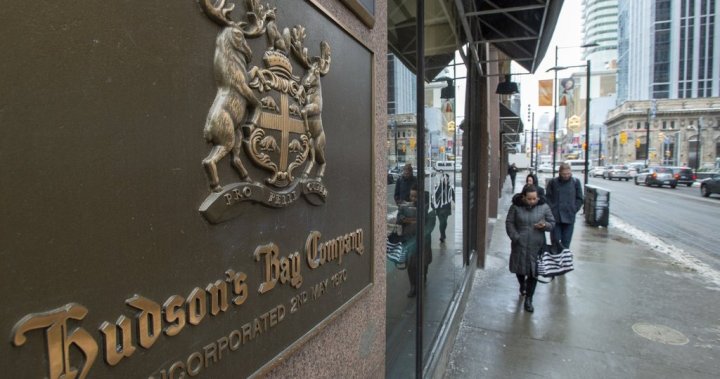A new survey suggests that a growing number of Canadians are hoping to squeeze in a summer getaway despite persistent financial pressures.
Ipsos polling conducted exclusively for Global News released on Friday shows that 62 per cent of respondents are at least somewhat likely to take a vacation this summer, up six percentage points from similar polling done in April 2023.
Some 79 per cent of respondents said they “really need” a vacation this year, up eight points from last year.
Sean Simpson, senior vice-president at Ipsos Global Affairs, said in an interview that the confluence of crises from recent years – from affordability challenges to overseas conflicts to climate change – is “clearly weighing on Canadians.”
“And perhaps as a result, they need an antidote. And that antidote is a summer vacation,” he said.
But the desire of Canadians to get away is coming up against ongoing financial worries from years of high inflation and rising interest rates. Despite recent cooling in inflation, FP Canada’s 2024 Financial Stress index released Thursday showed money stressors remain the top concern for a growing number of Canadians.
As a result, Ipsos’ poll shows that fewer Canadians feel they can easily afford a vacation (19 per cent, down four percentage points year-over-year).
Two-thirds of respondents (67 per cent) say they’re scaling back their vacation plans for the summer due to inflation, up five points from last year. Some 64 per cent say economic uncertainty is affecting their vacation plans, and three in five say they’re prioritizing other savings instead of time away.
Vacation intentions are divided along income and generational lines, according to Ipsos’ findings.
Half of households with annual incomes below $40,000 said they were at least somewhat likely to take a vacation this summer, compared to 79 per cent of those making more than $100,000.
Financial news and insights
delivered to your email every Saturday.
Younger Canadians aged 18-34 were the cohort most likely to say they were very likely to take a summer vacation (42 per cent), compared to those aged 35-54 (34 per cent) and older (30 per cent).
Financial realities are “putting a bit of a hamper” on getaway plans, Simpson noted. But he said the higher levels of vacation intent among Canadians suggest most households will find a way to make it work.
For younger Canadians in particular, Simpson said the desire to get a break could push some to put more money onto credit to finance a vacation, “budget be damned.”
“They’re going to find a way. They’re going to scrimp and save. They’re going to cut back a little bit,” he said. “But ultimately, most Canadians will find a way to travel on vacation in the summer.”
Shannon Terrell, lead writer and spokesperson for NerdWallet Canada, told Global News that there are upsides but also major risks to relying on a credit card to finance a vacation.
Some credit cards can offer built-in travel insurance programs, for example, and others might waive costly foreign transaction fees that can pile up over the course of a trip, she said.
When drawing down money from an ATM on an overseas trip, Terrell also warns Canadians to be aware of whether they’re processing a transaction in local currency or Canadian currency. The latter will usually be processed by an ATM’s preferred conversion rate, which tends to be higher than what a bank will use for a transaction made in local currency, she explains.
“We really want to avoid coming home to that nasty credit card bill that we’re not anticipating,” Terrell says.
Another way to avoid the “slippery slope” of credit card costs is to take out local currency for your destination at a bank before heading out on the trip, which Terrell says again will typically provide a better exchange rate and help avoid absentmindedly swiping a credit card on vacation.
Terrell says Canadians can also save more on an overseas vacation upfront by being more flexible with departure and arrival cities. Forgoing Pearson International Airport in Toronto for nearby Billy Bishop or John C. Munro in Hamilton can open up choices for potentially cheaper airfare, she gives as an example.
“Ultimately, we want to think about chasing the deal and not the destination.”
One other avenue that has Canadians looking abroad this summer at the 2024 Olympic Games in Paris.
Interest in this year’s summer games are up, according to Ipsos polling.
Nearly six in 10 (58 per cent) of respondents said they’re interested in the Paris Olympics, well above previous surveys that showed 32 per cent interest in the 2022 Beijing games and 33 per cent for the 2020 Tokyo games.
Canadians responded positively to the uniting powers of the games in the latest Ipsos survey. Some 85 per cent said Canada’s Olympic team makes them proud of their country, while four in five said the upcoming Paris games will be “an important opportunity for the world to come together.”
The majority of respondents also said the Olympics should go ahead in light of ongoing global conflicts and despite the climate impacts of travel and construction for the games.
Like a good summer vacation, Simpson said the Olympics have the potential to be a “tonic” for Canadians who are looking for a bit of escapism.
Simpson added that Ipsos polling is starting to show a bit of a “turnaround in optimism for Canadians.” Some households who might’ve been hoping for interest rate cuts from the Bank of Canada by now might have renewed hope that financial stress could be easing soon with economic data showing signs of inflation cooling, he said.
“I think the Olympics, I think summer travel, the nice weather, are all pointing to this summer may not be quite as bad as those that we’ve experienced in recent years.”
© 2024 Global News, a division of Corus Entertainment Inc.




